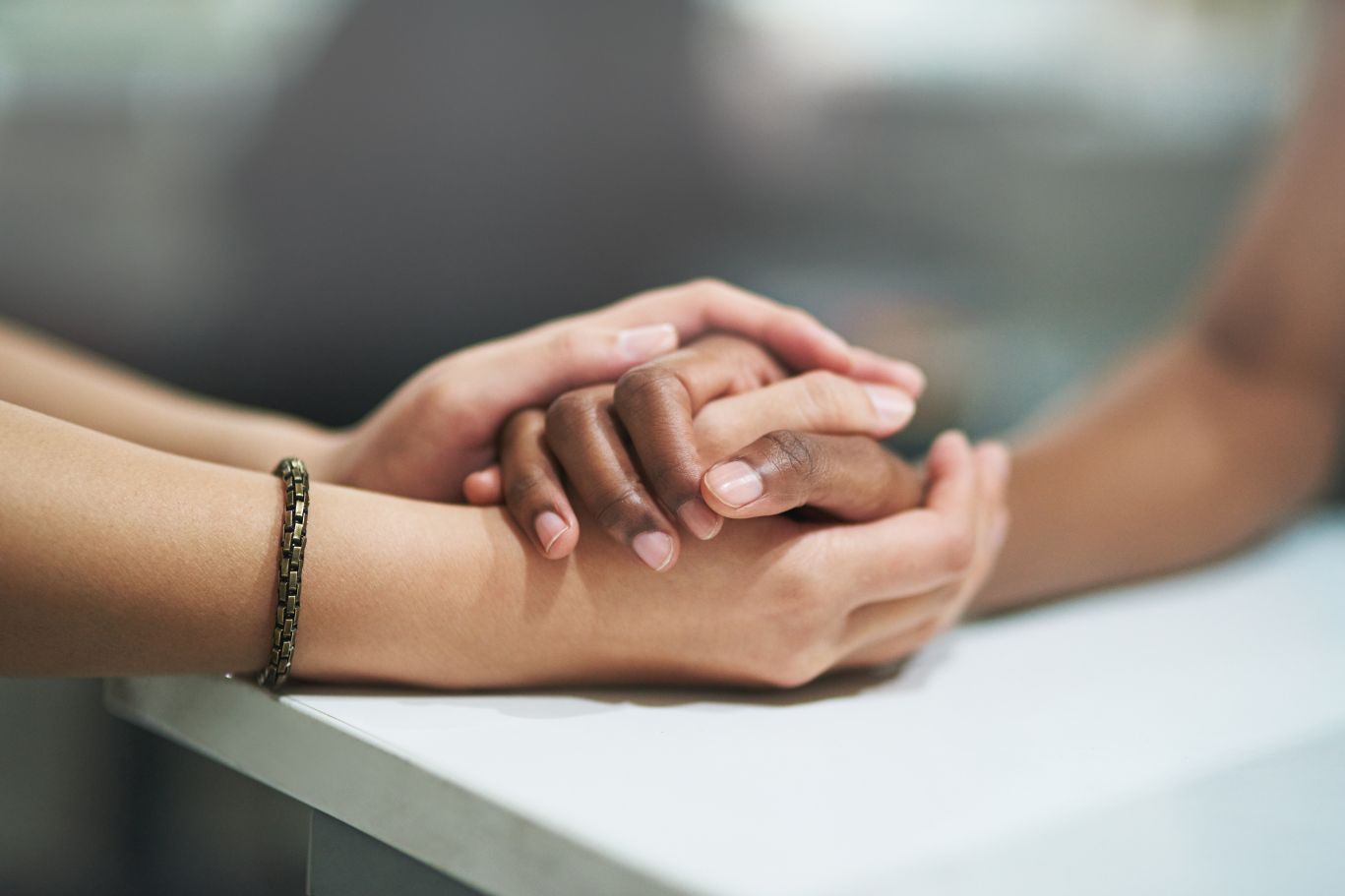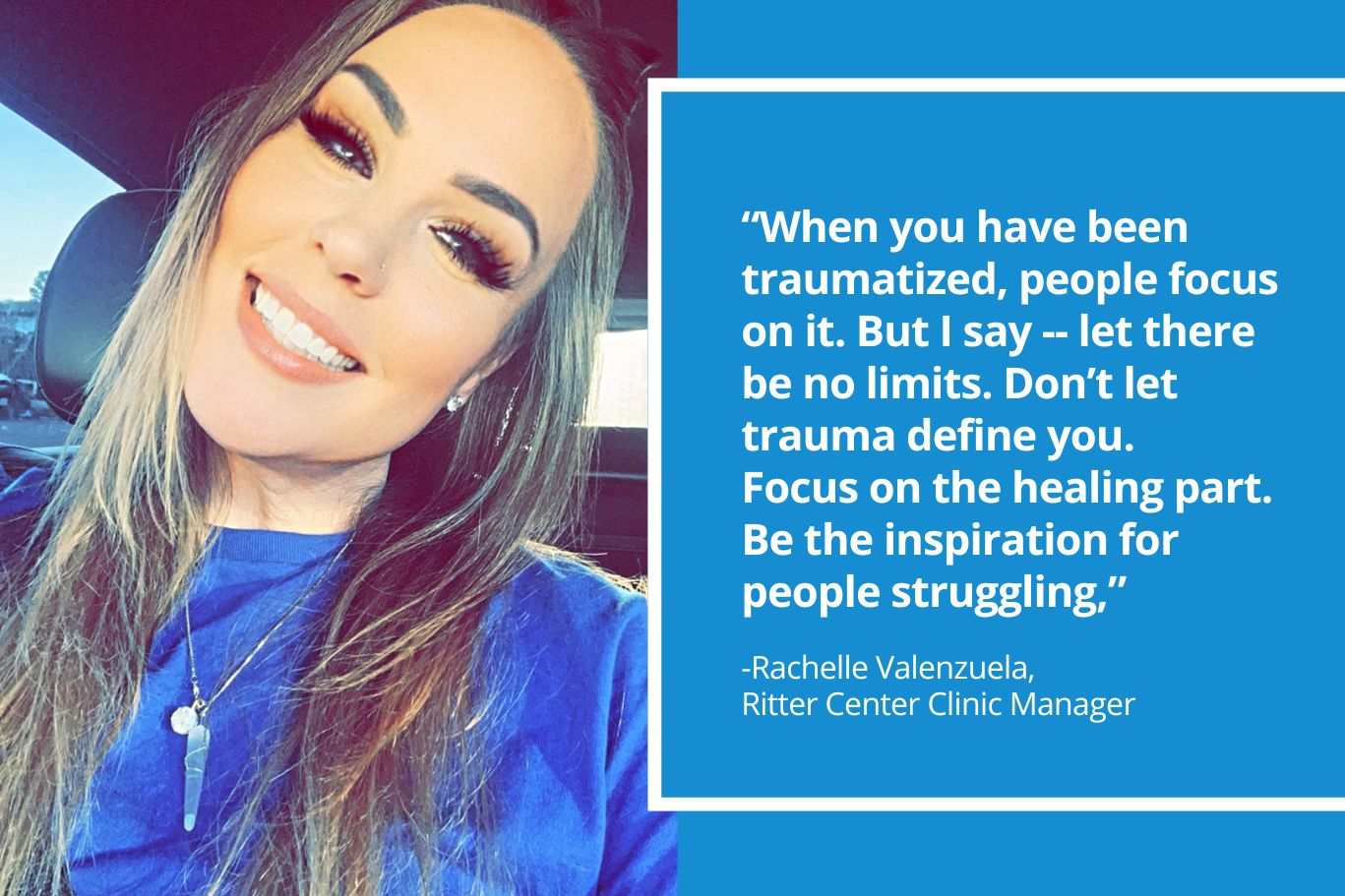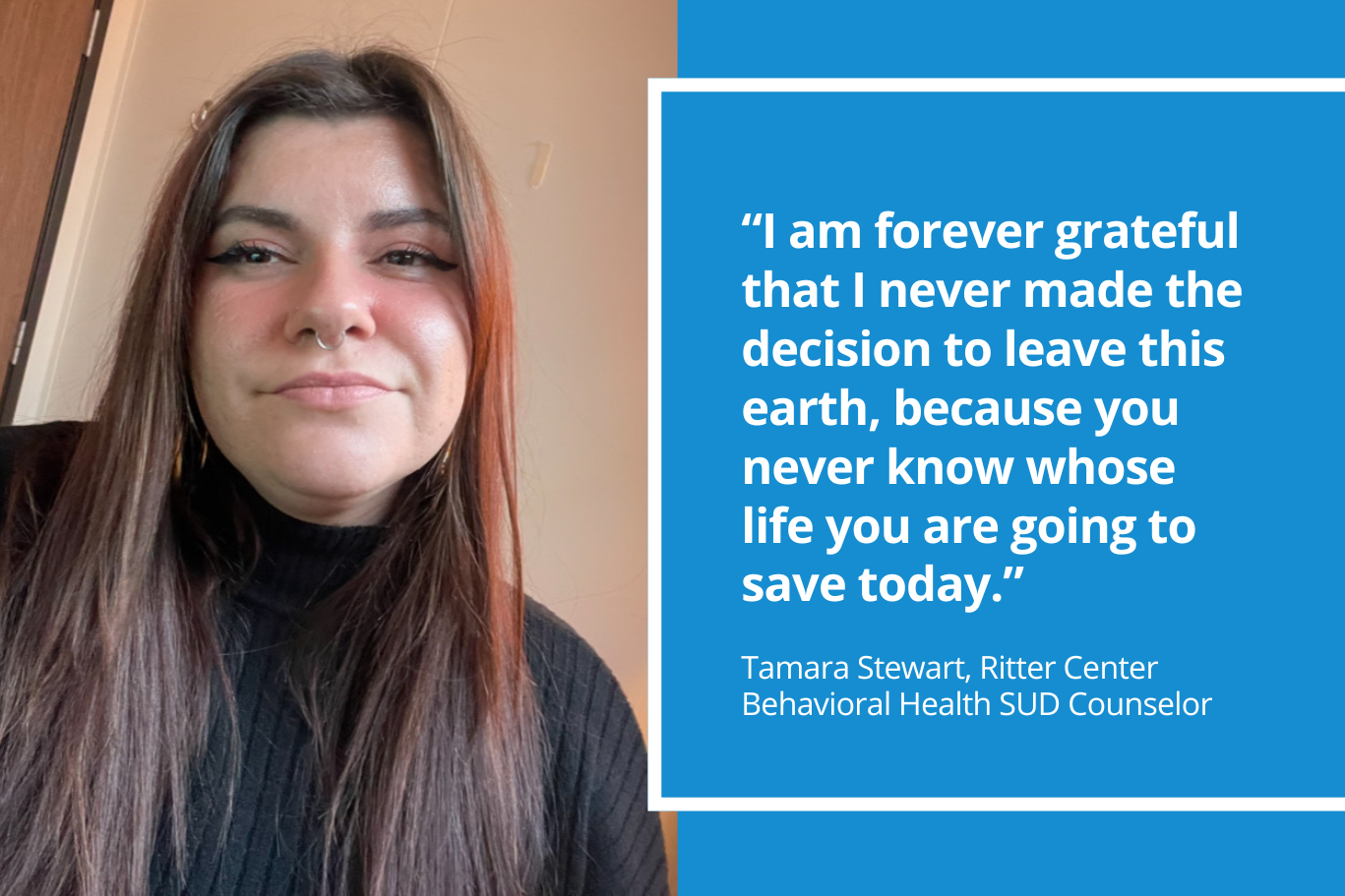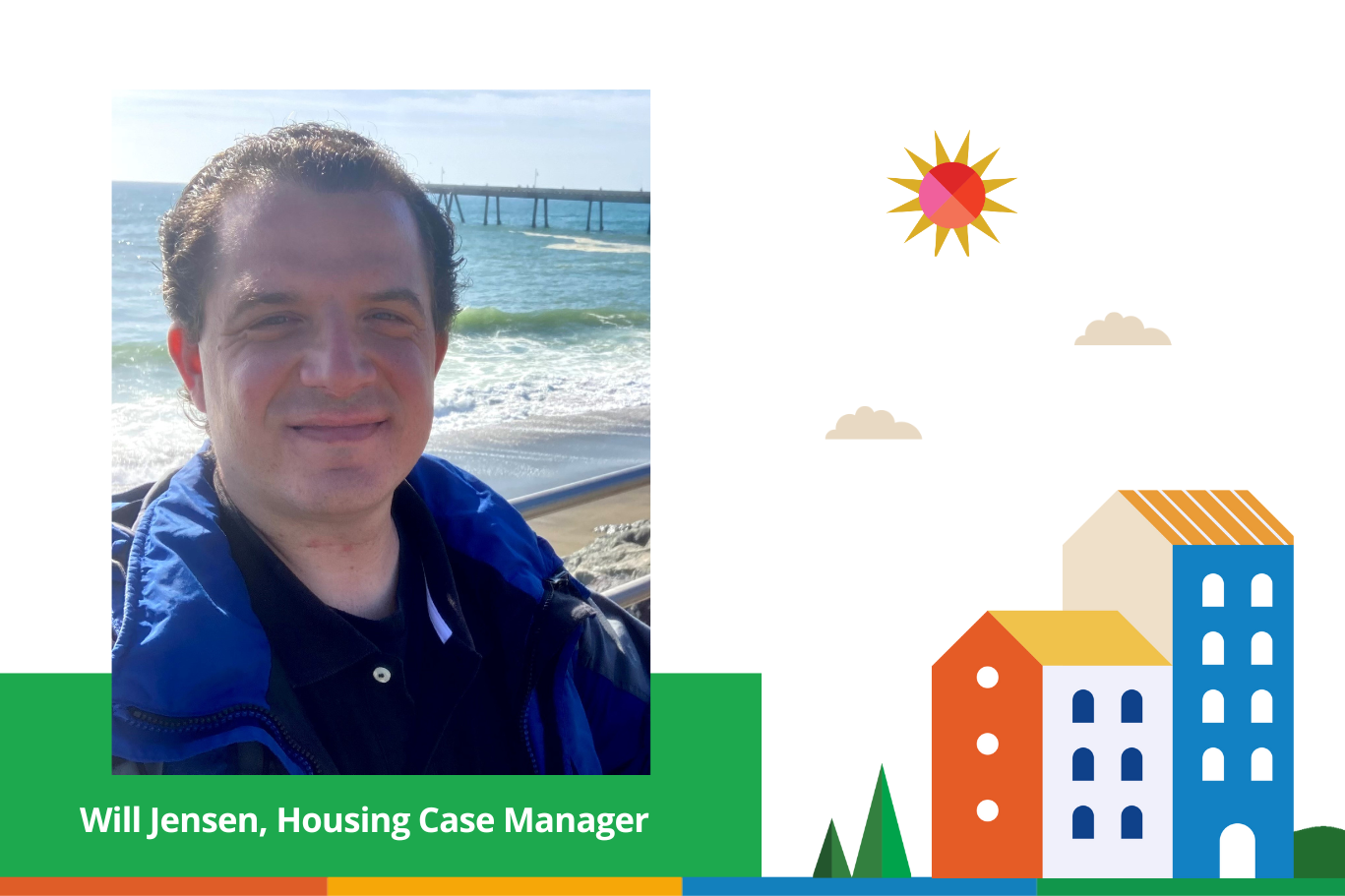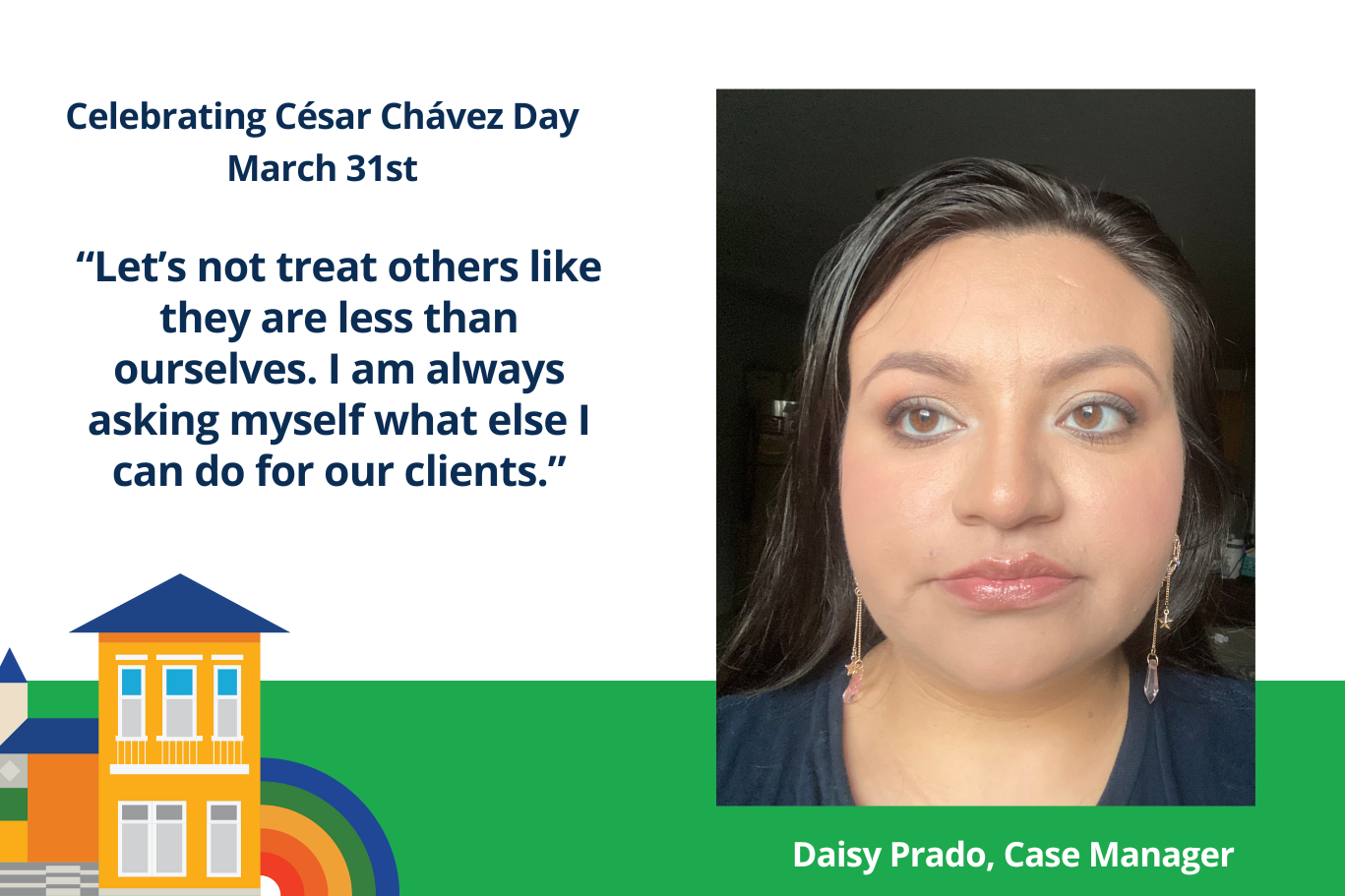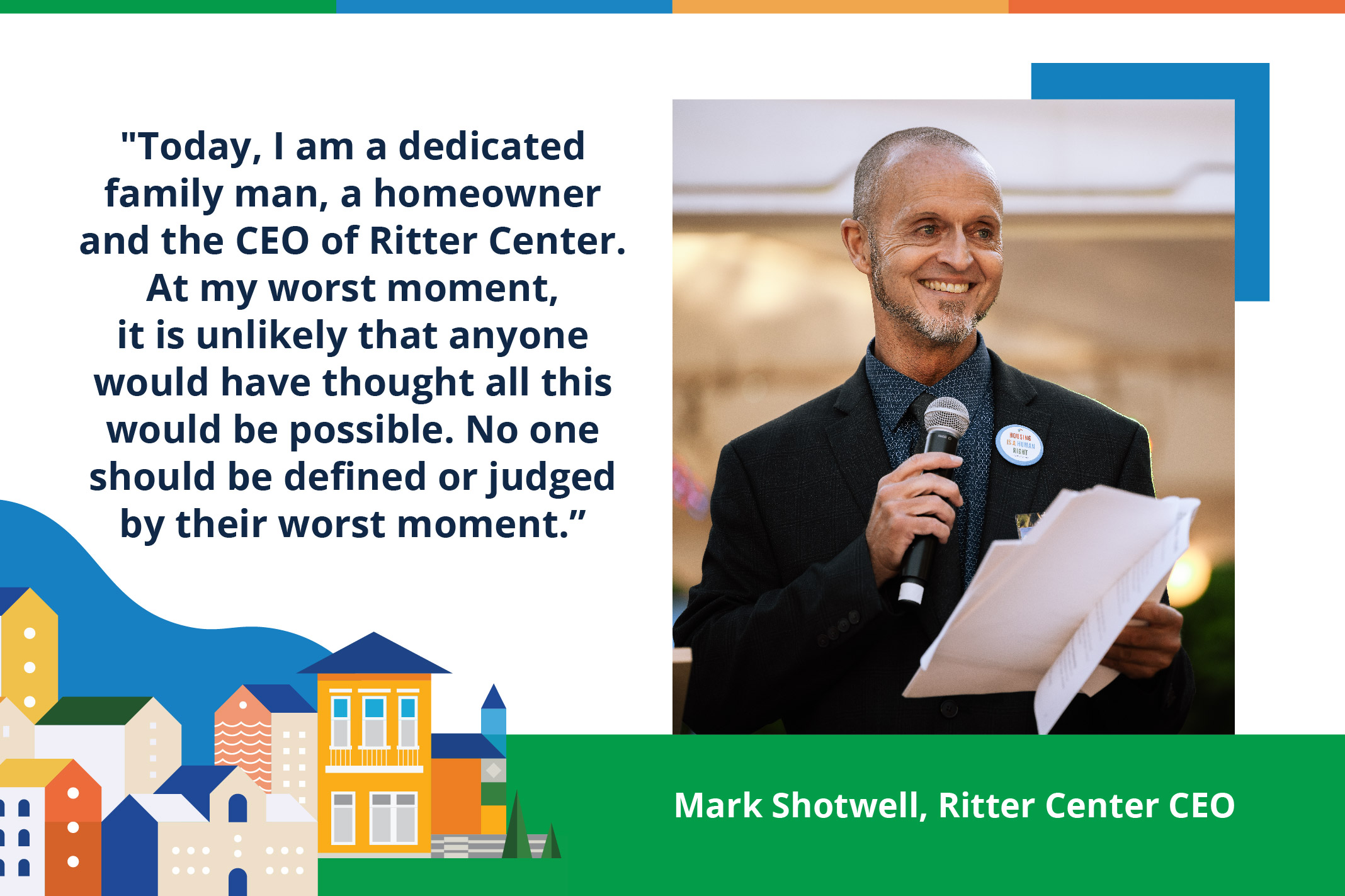
Interview with Mark Shotwell, Ritter Center CEO
“I can still hear the sounds of kids outside my childhood bedroom window taunting me – ‘Coming to school today, Shotwell?’ they would say. Typically, I would do anything in the world to stay home. The only safe place was the four walls of my bedroom. I quickly figured out that the best way to hide was to tell people you were sick in order to avoid going to school. Between being constantly made fun of in class with everyone laughing at my expense and not wanting to get beat up after class, I was in a constant state of shame and misery,” remembered Ritter Center CEO Mark Shotwell.
“I didn’t know how to cope. In fact, looking back, I was waving tons of red flags. And although I had loving parents, my dad worked the graveyard shift to take care of my mom during the day. She had developed some very serious health issues and a significant degree of pain. She was no longer able to be as present as a mother as she wanted to be. My mom’s struggles changed her, and her relationship with me,” he reflected.
Mark often got bullied and beat up at school. By saying that he couldn’t go to school because he was too sick, he found an escape hatch. But it wasn’t from physical illness – he was developing depression and anxiety, and the symptoms were profoundly debilitating.
He struggled through his school years, and eventually connected with a friend group that offered an escape. This group of kids listened to a lot of rock and roll and smoked a lot of weed. Mark felt that these were the only people that would accept him. “They would hang out with me and offered me some sense of community,” he recalled.
During high school, Mark started drinking alcohol at times, but not all the time. He found it made him feel more comfortable around others. However, he remembers that he always drank too much, got sick and even had some blackouts.
Despite missing many classes in high school, Mark graduated in the top of his class. During senior year, he joined a New Wave band and his two bandmates became his friends. “We played the Senior Assembly, and kind of rocked it! Fellow students said it was pretty good and that was the first moment that I can remember where I sort of felt cool. When the moment came to try cocaine with my new bandmate and best friend, initially I thought ‘hell no!’ but what made me shift was the fact that I idolized this person and felt he was my only true friend. I didn’t want to do anything that separated me from him. I didn’t want to lose somebody that I thought I needed in my life,” described Mark.
The effect of the cocaine was immediate and impactful. He shot his best pool game ever. He could flirt with girls. He felt for the first time on top of the world.
When he fell asleep that night, he realized that this was what he had been missing his whole life. This made him feel whole. Having always felt broken and different, he was now like everyone else.
He called his friend to see if he could get more of that magical stuff. In the beginning, for a little while, it was glory.
“But, cocaine doesn’t last long and is expensive. But methamphetamine – for the same price – lasted 3 days, not 3 hours. Again, I had found home … or so I thought,” revealed Mark.
Some dark times followed. “I followed this friend into circumstances that obliterated my values,” remember Mark. He lost a series of jobs and his parents moved him to an apartment two blocks away. They didn’t want him at home while he was doing drugs. Mark dove head over heels into meth.
Auditory hallucinations and delusional beliefs followed. His mother became more and more worried about him and eventually called the police to check on him. Mark told the officers he wanted help. They took him to a psychiatric emergency room where he stayed for 18 hours. But 18 hours later they released him with a bus token and a cocaine hotline.
His mom tried to take him to a drug rehabilitation program, but the staff told them they could not take Mark until he was on medication for mental illness. When they went to the mental health clinic, they said the opposite – get clean first and then they would help.
Soon after, Mark was admitted to a mental health hospital where he was in treatment for 3 months. There he learned about psychotic symptoms, anxiety and depression. He received medication that helped to calm and quiet his mind. He also learned about drugs and alcohol and what they can do to your body, mind and soul. He learned that drugs and alcohol can bring on symptoms of mental illness. The staff told him he could live a full life through hope and recovery.
After his discharge, Mark began using drugs again. His psychotic symptoms returned and so he stopped using meth and began using weed. However, he became just as paranoid and delusional and that is when he changed his life forever.
“At 21 years old, I walked into Narcotics Anonymous. I did not know where else to go. Soon, they asked me to make coffee at the fellowship and that’s how I began to feel like a part of the community. At a meeting, you are the most loved person if you make coffee. felt a part of something bigger than myself. I belonged. These were my people,” recalled Mark.
“I still experience symptoms of depression and anxiety, but I don’t need to turn to drugs or alcohol to cope. Therapy, medication, family and community have allowed me to learn to manage my symptoms and have a life worth living.” said Mark.
In early recovery, Mark made some friends through a support group for young people. One of them was named Jessica. Mark went to school to work in the Behavioral Health field and got his first job as a Counselor at 25 years old. Jessica and Mark reconnected years later and eventually married and had their three children.
“When we bought our home, I knew there would come a day when I would be in the driveway, look in the upstairs window and she’d be holding my (first) son. That dream came true. The dream that I never thought could happen for someone like me. Today, I am a dedicated family man, a homeowner and the CEO of Ritter Center. At my worst moment, it is unlikely that anyone would have thought all this would be possible. No one should be defined or judged by their worst moment,” shared Mark.
“I am so grateful to help other people reclaim their lives and their dreams. Don’t ever give up on anyone. If we haven’t figured out yet how to help people, it is not their fault. They are desperate for someone to hold their hand, and to make it just a little more possible to take one more step. You might offer it for a year before they reach back. But they will. We must be trustful, compassionate and tireless. Don’t give up. Don’t count people out. They are all capable of the dreams that we have. They want someone else to believe in them so they can believe in themselves.”
